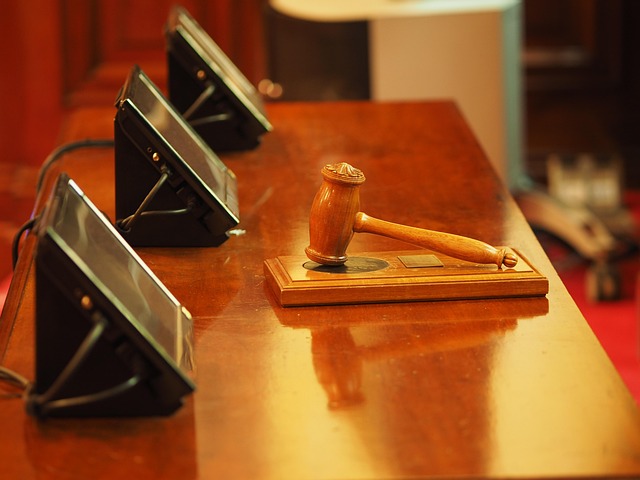Regulatory compliance is a strategic process that ensures organizations operate within legal boundaries, maintain trust, and protect business integrity by understanding complex laws and anticipating changes. In legal disputes like libel cases, adhering to regulations, including those concerning press freedom and defamation, within the Statute of Limitations for Libel Cases (usually one to two years) serves as a robust defense mechanism, potentially dismissing charges and protecting organizations from legal repercussions. Effective compliance demands constant vigilance, professional guidance, and collaboration between legal and operational teams to avoid indictment and achieve superior risk management outcomes. By staying informed about rights and obligations, organizations can proactively navigate defamation cases and safeguard their reputation.
Regulatory compliance is a cornerstone of any successful organization, but navigating complex legal frameworks can pose significant challenges. This article delves into critical aspects of regulatory adherence, focusing on understanding regulatory compliance definitions and importance. We explore common hurdles in adhering to legal frameworks and analyze the intricate details of the Statute of Limitations for Libel Cases, offering strategic insights to mitigate potential risks. By addressing these key issues, businesses can ensure they remain compliant and protect their interests.
- Understanding Regulatory Compliance: Definitions and Importance
- Common Challenges in Adhering to Legal Frameworks
- The Statute of Limitations for Libel Cases: Implications and Strategies
Understanding Regulatory Compliance: Definitions and Importance

Regulatory compliance goes beyond merely adhering to laws and regulations; it’s a comprehensive approach to ensuring that an organization operates within legal boundaries at every step, from initial planning to final execution. This involves understanding complex legislative frameworks, proactively anticipating changes in the regulatory environment, and implementing policies that mirror industry best practices. It’s about more than just avoiding penalties; it’s about fostering trust, maintaining consumer confidence, and upholding the integrity of business operations.
In the context of legal disputes, such as libel cases, regulatory compliance plays a significant role. The Statute of Limitations for Libel Cases, for instance, dictates the time frame within which legal actions can be taken, emphasizing the importance of timely compliance with regulations governing press freedom and defamation. An unprecedented track record of successful regulatory compliance can serve as a shield, potentially leading to complete dismissal of all charges in such cases, protecting organizations from undue legal repercussions.
Common Challenges in Adhering to Legal Frameworks

Adhering to legal frameworks presents numerous challenges for businesses, especially when navigating complex regulatory environments. One significant hurdle is understanding and keeping pace with evolving statutes, such as the Statute of Limitations for Libel Cases, which can vary by jurisdiction. This requires constant vigilance and professional guidance to ensure compliance.
Additionally, white-collar and economic crimes pose intricate legal issues. Businesses must implement robust internal controls and policies to avoid indictment and achieve extraordinary results in risk management. Achieving this involves a deep understanding of the law, proactive monitoring, and effective communication between legal and operational teams.
The Statute of Limitations for Libel Cases: Implications and Strategies

In many jurisdictions, the Statute of Limitations for Libel Cases sets a time frame within which legal actions can be initiated after the publication of defamatory material. This period varies across countries and states, but it generally ranges from one to two years. Understanding this statutory limit is crucial for businesses to manage their legal risks effectively. Failure to file a lawsuit within the prescribed deadline can result in a loss of the right to seek damages or an unfavorable outcome when facing libelous accusations.
A strategic approach to managing potential libel cases involves proactive measures. Businesses should implement clear communication protocols and fact-checking procedures to minimize the risk of defamatory content being published. Additionally, having a robust legal team specializing in media law can be invaluable for crafting winning challenging defense verdicts. By staying informed about the respective business’s legal obligations and rights regarding defamation, organizations can achieve extraordinary results in navigating these complex cases and protecting their reputation in the event of a lawsuit.
In navigating the complex landscape of regulatory compliance, understanding legal frameworks and their nuances is paramount. The article has explored critical aspects, including the definitions and significance of regulatory compliance, common challenges organizations face in adhering to these rules, and the intricate details surrounding the Statute of Limitations for Libel Cases – a vital consideration for businesses to protect their reputation and avoid legal pitfalls. By recognizing these issues and implementing strategic solutions, entities can enhance their operational resilience and ensure long-term success in an ever-evolving regulatory environment.






